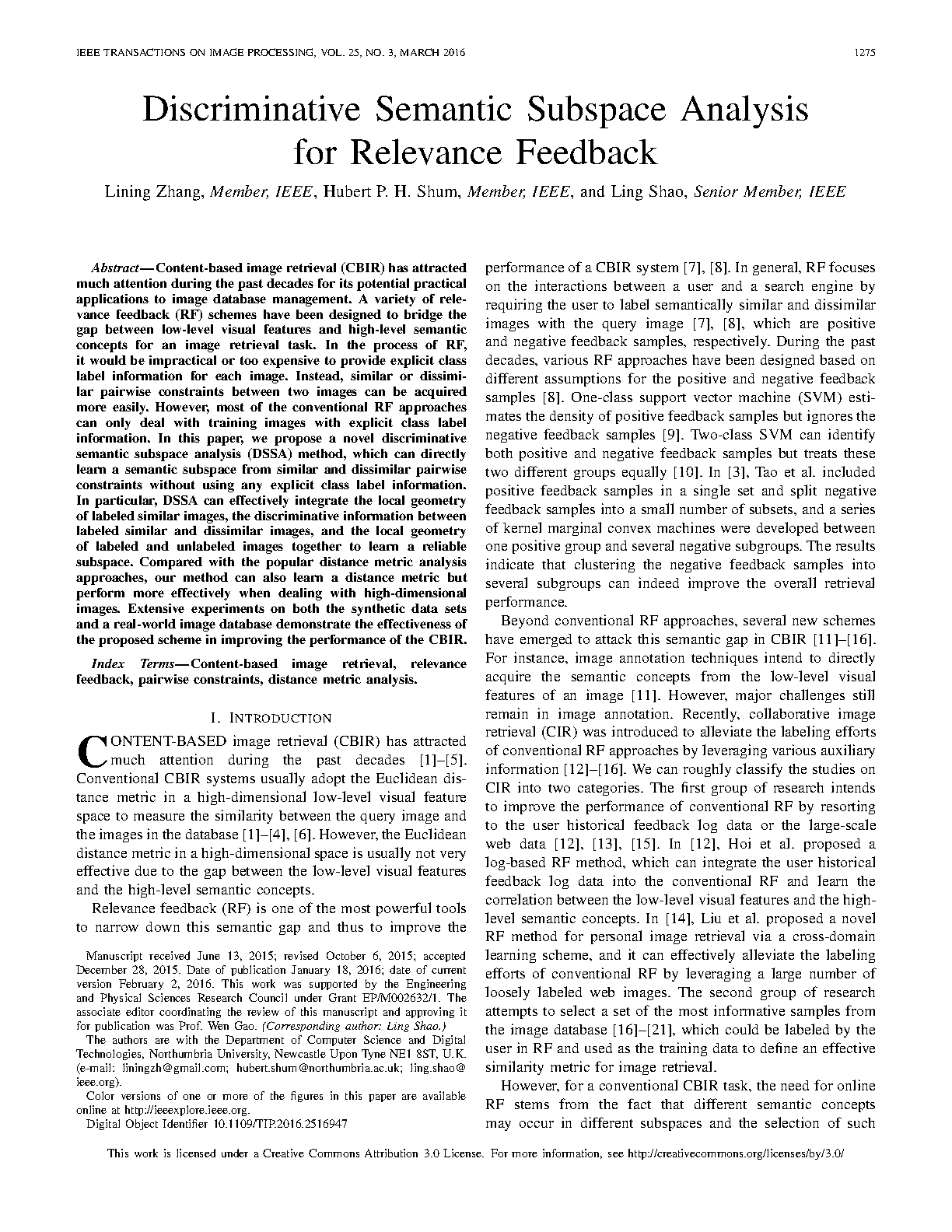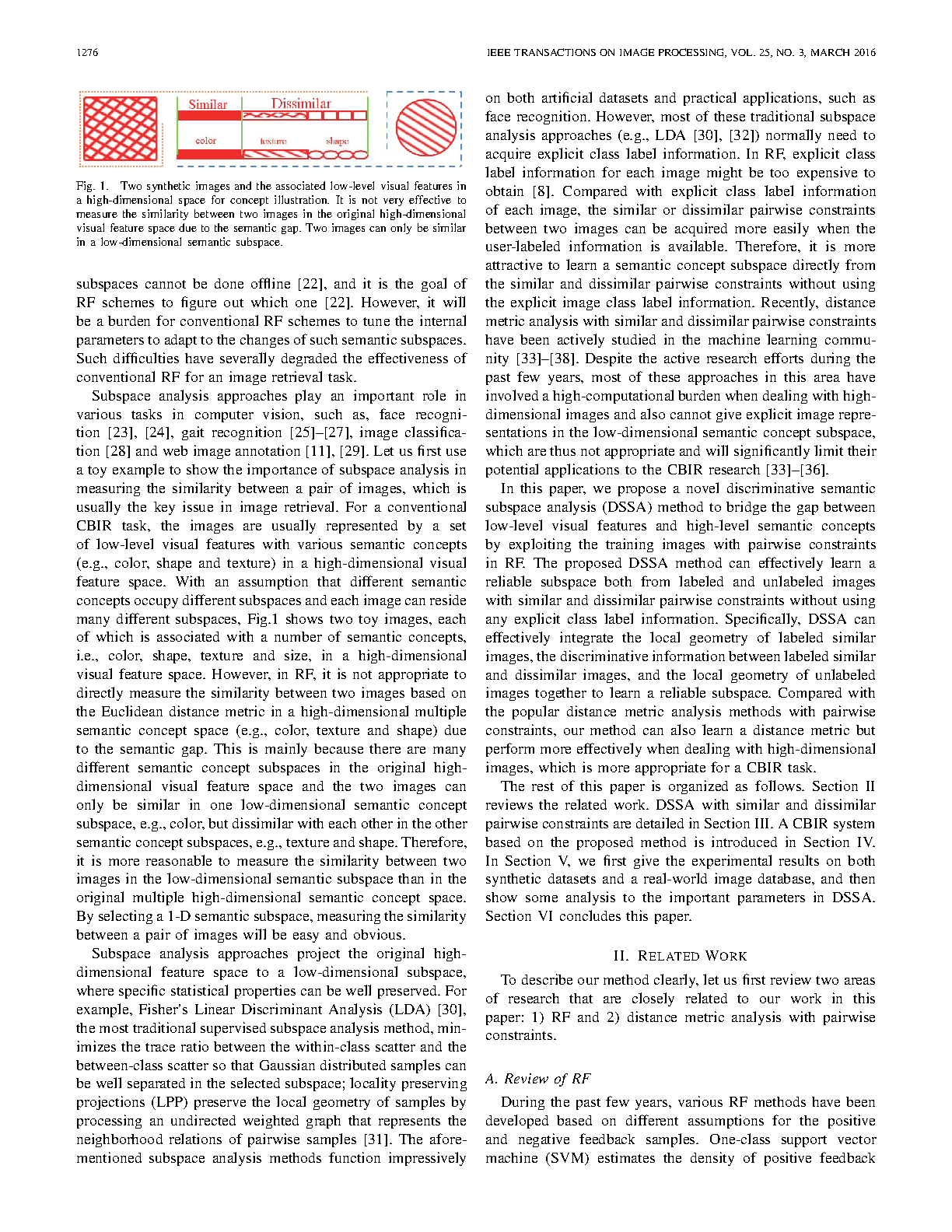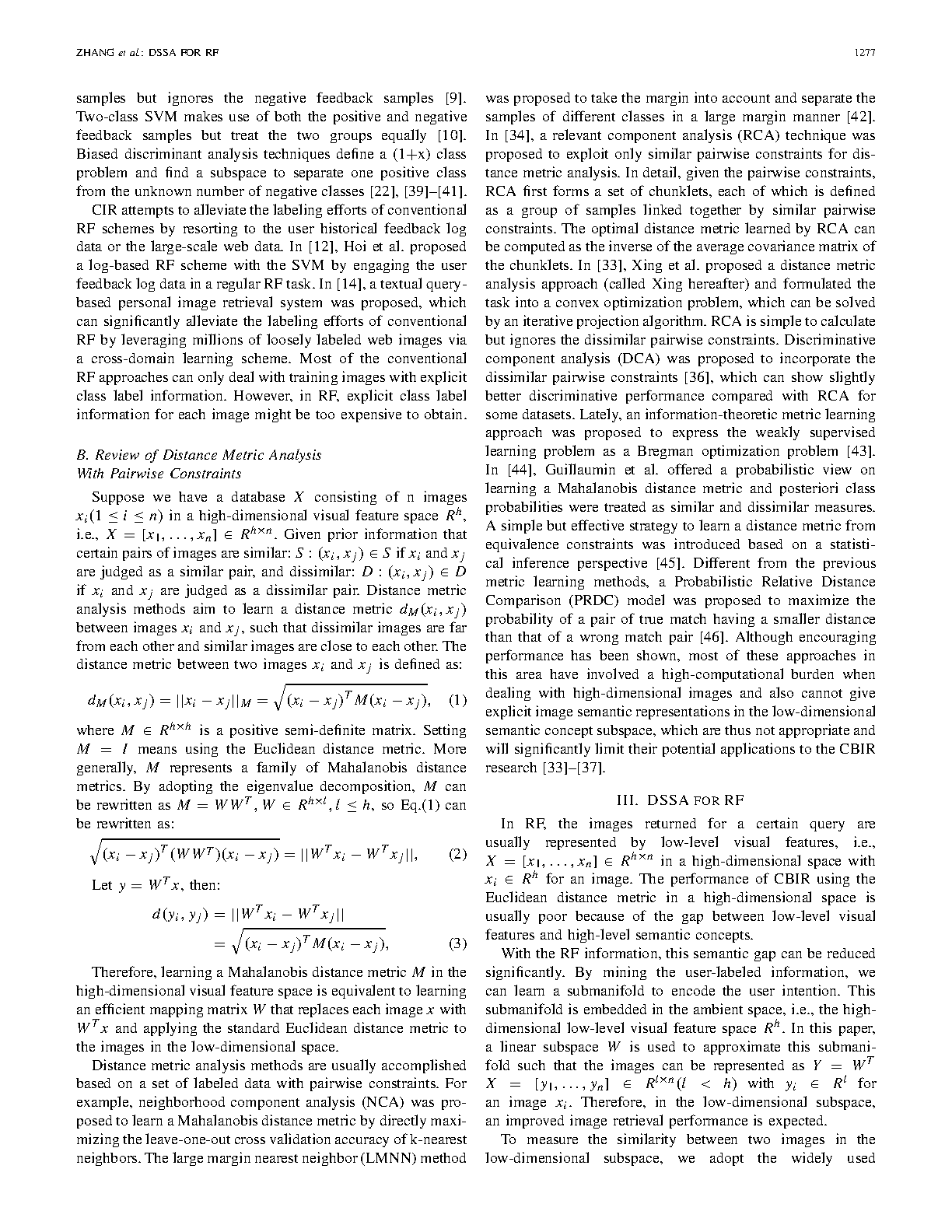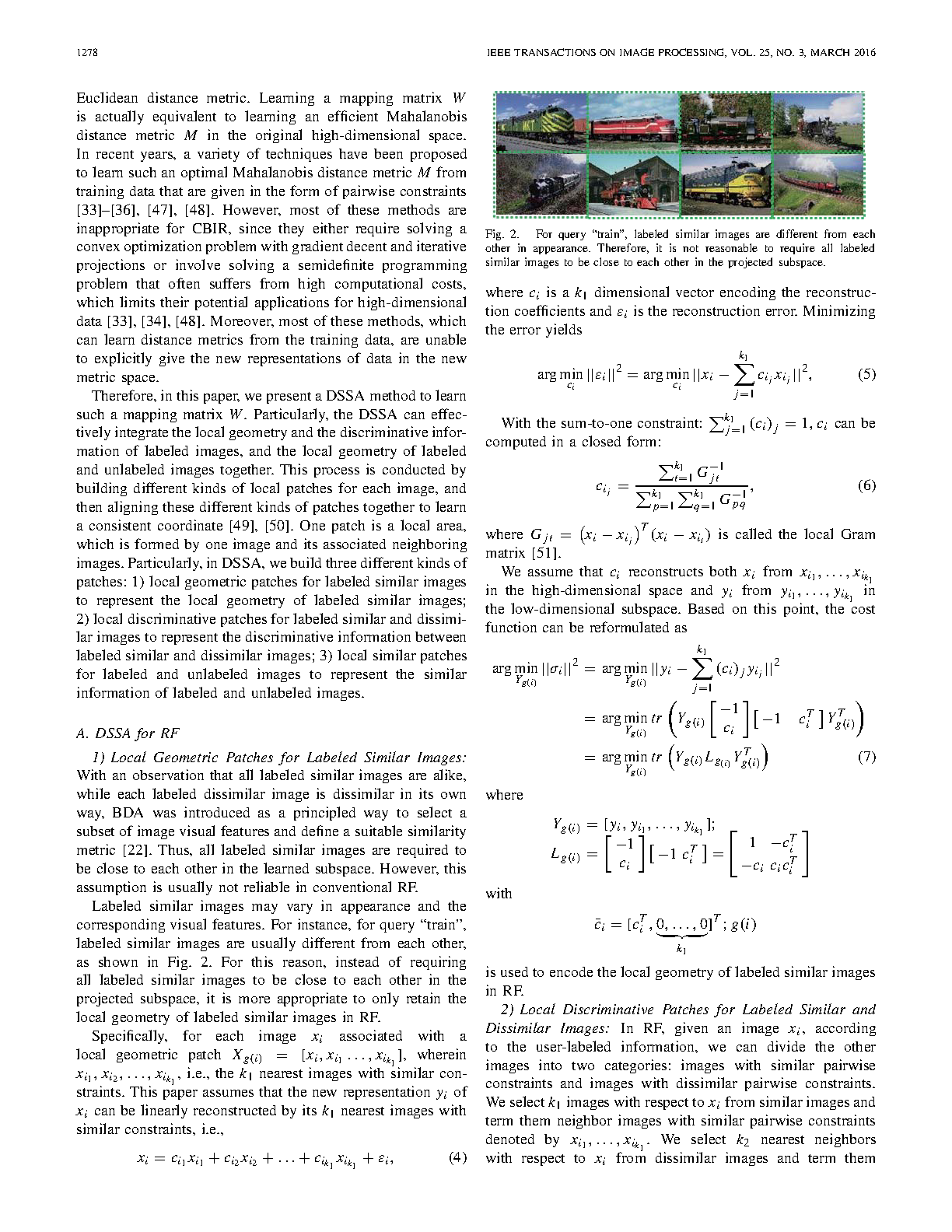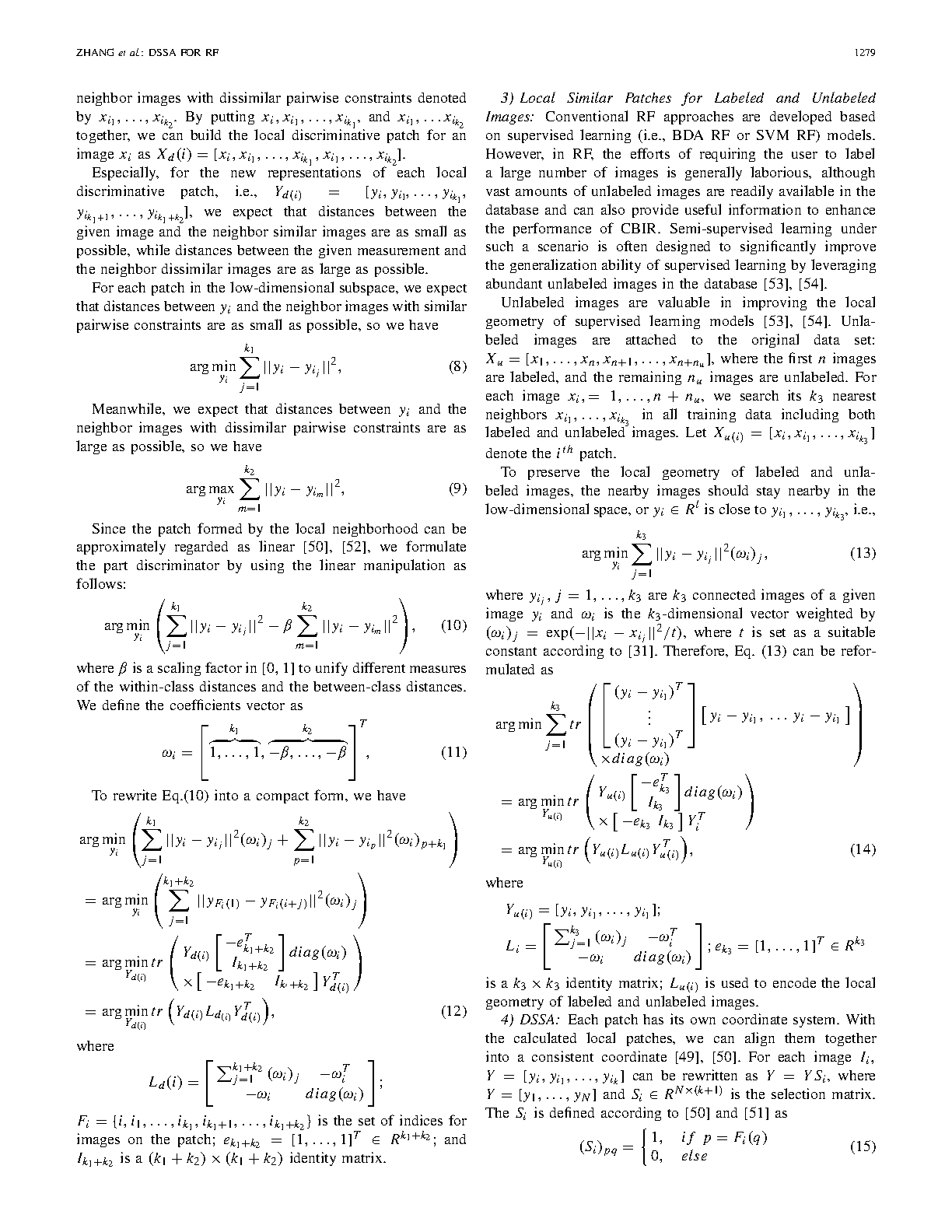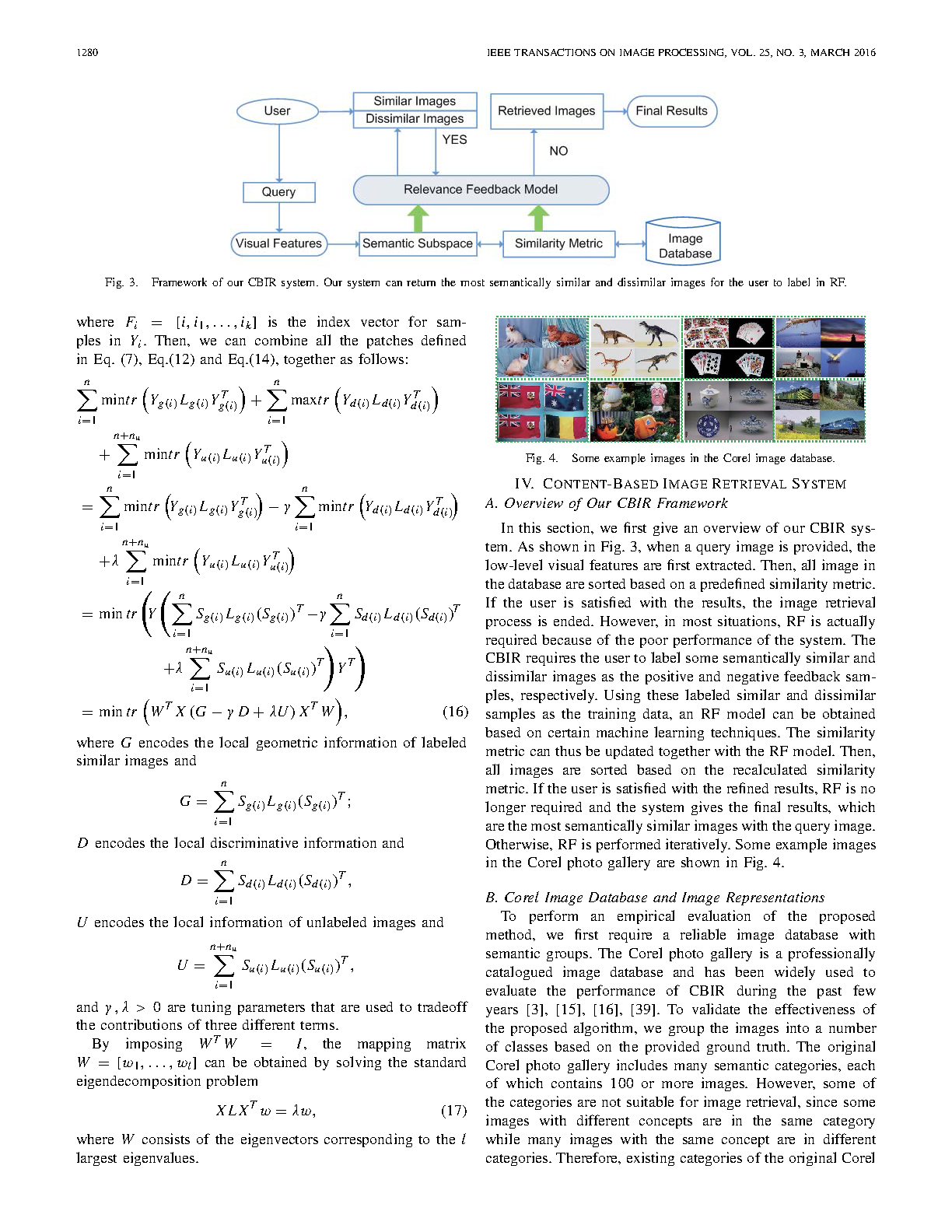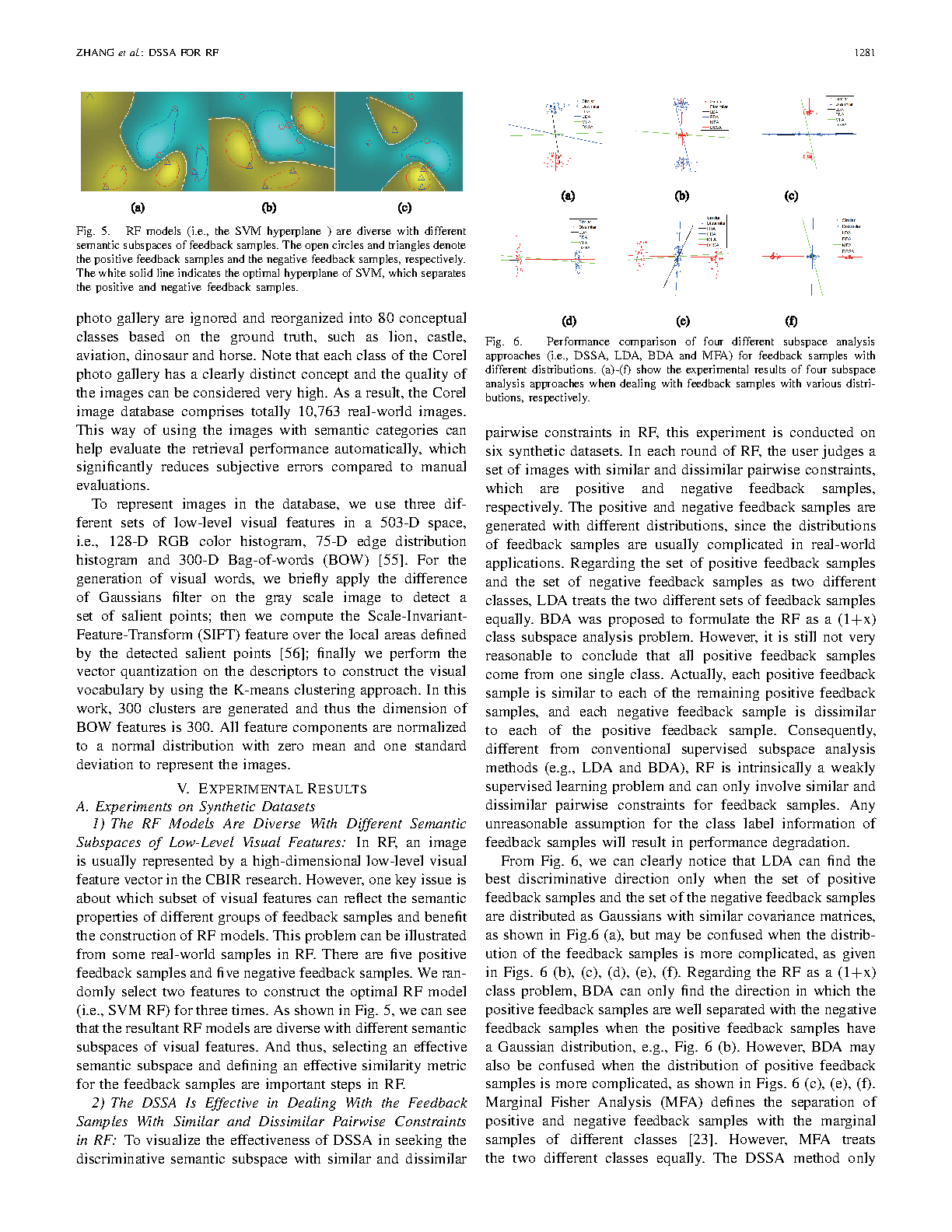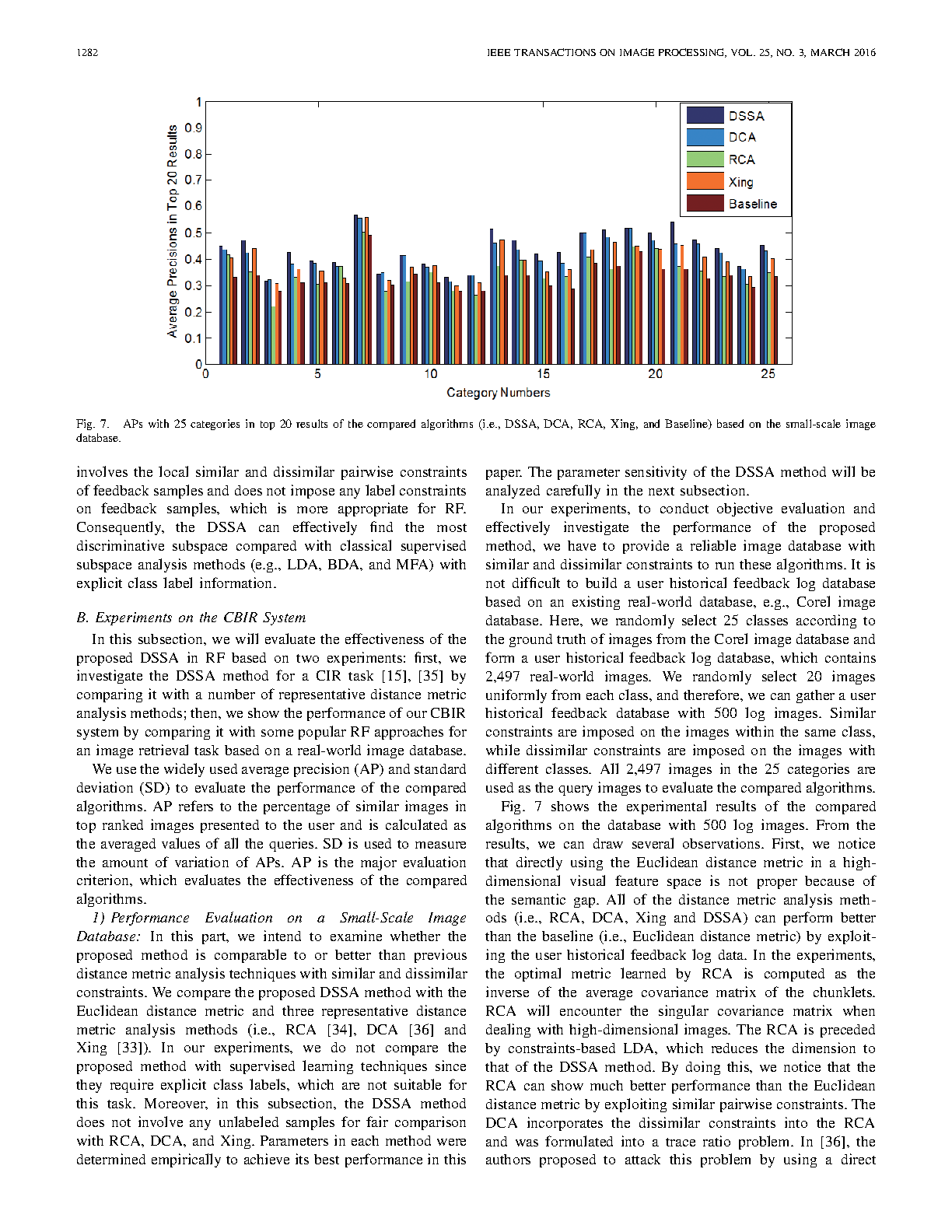Discriminative Semantic Subspace Analysis for Relevance Feedback

Abstract
Content-based image retrieval (CBIR) has attracted much attention during the past decades for its potential practical applications to image database management. A variety of relevance feedback (RF) schemes have been designed to bridge the gap between low-level visual features and high-level semantic concepts for an image retrieval task. In the process of RF, it would be impractical or too expensive to provide explicit class label information for each image. Instead, similar or dissimilar pairwise constraints between two images can be acquired more easily. However, most of the conventional RF approaches can only deal with training images with explicit class label information. In this paper, we propose a novel discriminative semantic subspace analysis (DSSA) method, which can directly learn a semantic subspace from similar and dissimilar pairwise constraints without using any explicit class label information. In particular, DSSA can effectively integrate the local geometry of labeled similar images, the discriminative information between labeled similar and dissimilar images, and the local geometry of labeled and unlabeled images together to learn a reliable subspace. Compared with the popular distance metric analysis approaches, our method can also learn a distance metric but perform more effectively when dealing with high-dimensional images. Extensive experiments on both the synthetic data sets and a real-world image database demonstrate the effectiveness of the proposed scheme in improving the performance of the CBIR.
Publication
Discriminative Semantic Subspace Analysis for Relevance Feedback by Shanfeng Hu, Worasak Rueangsirarak, Maxime Bouchee, Nauman Aslam and Hubert P. H. Shum in 2017
IEEE Transactions on Image Processing (TIP)
Links and Downloads
